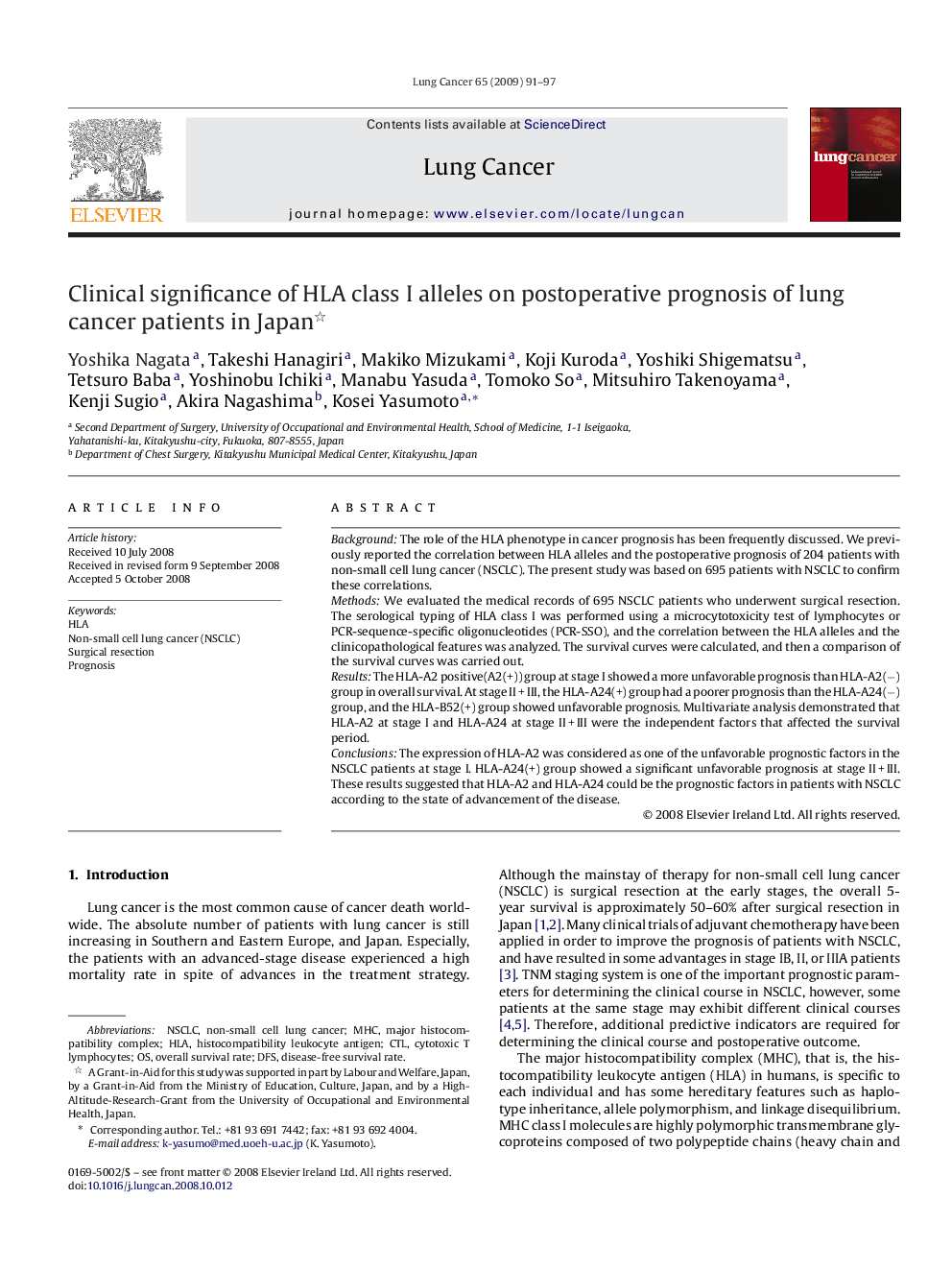| Article ID | Journal | Published Year | Pages | File Type |
|---|---|---|---|---|
| 2143295 | Lung Cancer | 2009 | 7 Pages |
SummaryBackgroundThe role of the HLA phenotype in cancer prognosis has been frequently discussed. We previously reported the correlation between HLA alleles and the postoperative prognosis of 204 patients with non-small cell lung cancer (NSCLC). The present study was based on 695 patients with NSCLC to confirm these correlations.MethodsWe evaluated the medical records of 695 NSCLC patients who underwent surgical resection. The serological typing of HLA class I was performed using a microcytotoxicity test of lymphocytes or PCR-sequence-specific oligonucleotides (PCR-SSO), and the correlation between the HLA alleles and the clinicopathological features was analyzed. The survival curves were calculated, and then a comparison of the survival curves was carried out.ResultsThe HLA-A2 positive(A2(+)) group at stage I showed a more unfavorable prognosis than HLA-A2(−) group in overall survival. At stage II + III, the HLA-A24(+) group had a poorer prognosis than the HLA-A24(−) group, and the HLA-B52(+) group showed unfavorable prognosis. Multivariate analysis demonstrated that HLA-A2 at stage I and HLA-A24 at stage II + III were the independent factors that affected the survival period.ConclusionsThe expression of HLA-A2 was considered as one of the unfavorable prognostic factors in the NSCLC patients at stage I. HLA-A24(+) group showed a significant unfavorable prognosis at stage II + III. These results suggested that HLA-A2 and HLA-A24 could be the prognostic factors in patients with NSCLC according to the state of advancement of the disease.
